Chinese and South Korean sci-fi writers collaborate on anthology, using the genre to redefine the feminine form and convey concrete experiences, Yang Yang reports.
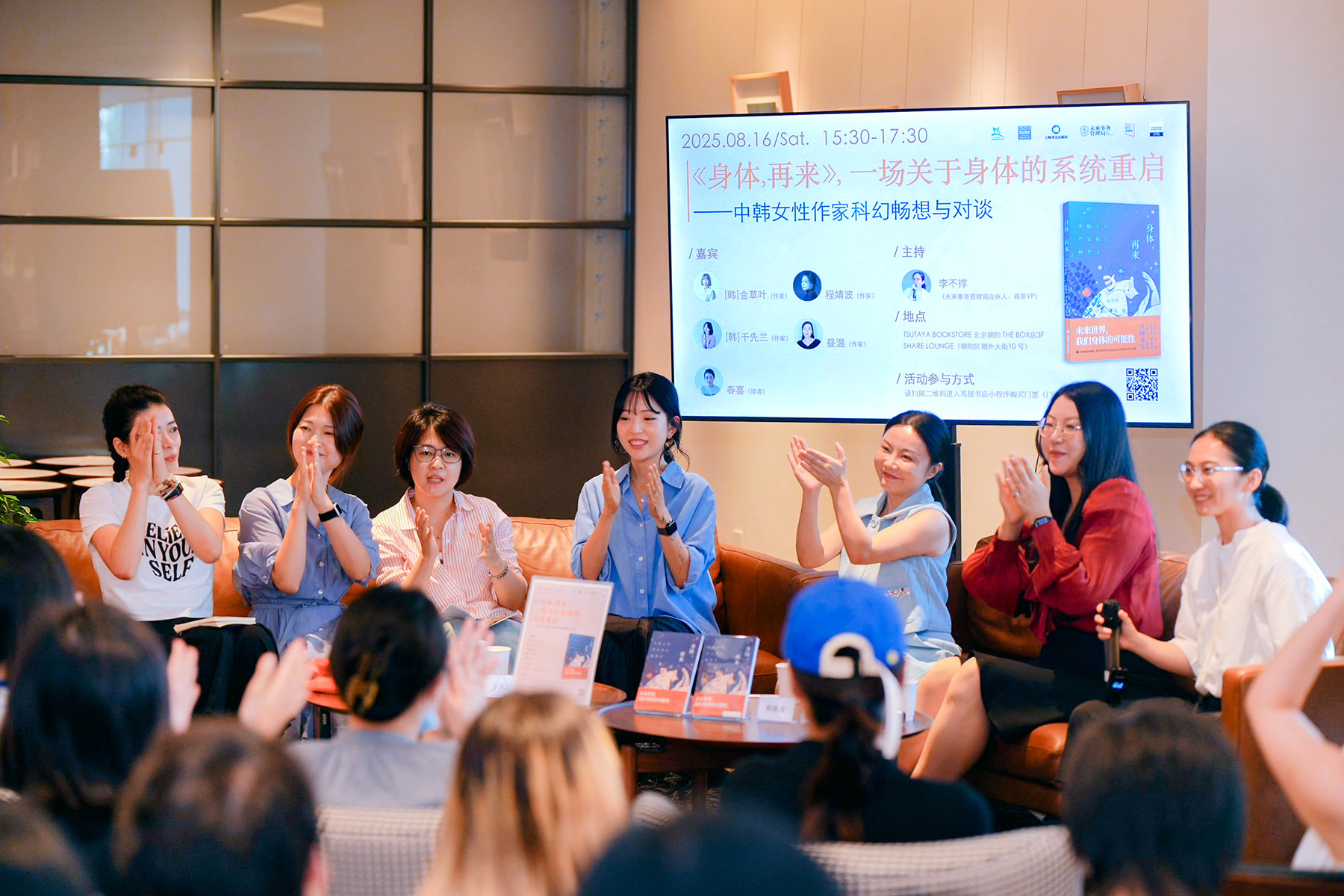
One hot afternoon in mid-August, at Beijing's Tsutaya Bookstore, a long line of readers wrapped around the venue for the book signing of Shenti, Zailai (Body, Again).
The Chinese edition of the book, launched in mid-August, is a sci-fi anthology coauthored by six female writers from China and South Korea.
Earlier in June, its Korean version had already attracted attention at the Seoul International Book Fair, where it was warmly received. Since being published in the country, it has sold over 10,000 copies in the first month.
This cross-border creative endeavor was launched by the Future Affairs Administration, a company based in Beijing specializing in sci-fi publications, consulting and filmmaking, in collaboration with the South Korean publisher Influential, and Shanghai Translation Publishing House.
READ MORE: Museum dedicated to sci-fi writer opens
Centered on the theme of the "body", the book features works by South Korean writers Kim Cho-yeop, Kim Chung-gyul and Cheon Seonran, and Chinese writers Zhou Wen, Cheng Jingbo, and Wang Kanyu.
Both Kim Cho-yeop and Cheon Seon-ran are hailed as rising stars "standing at the dawn of Korean science fiction".
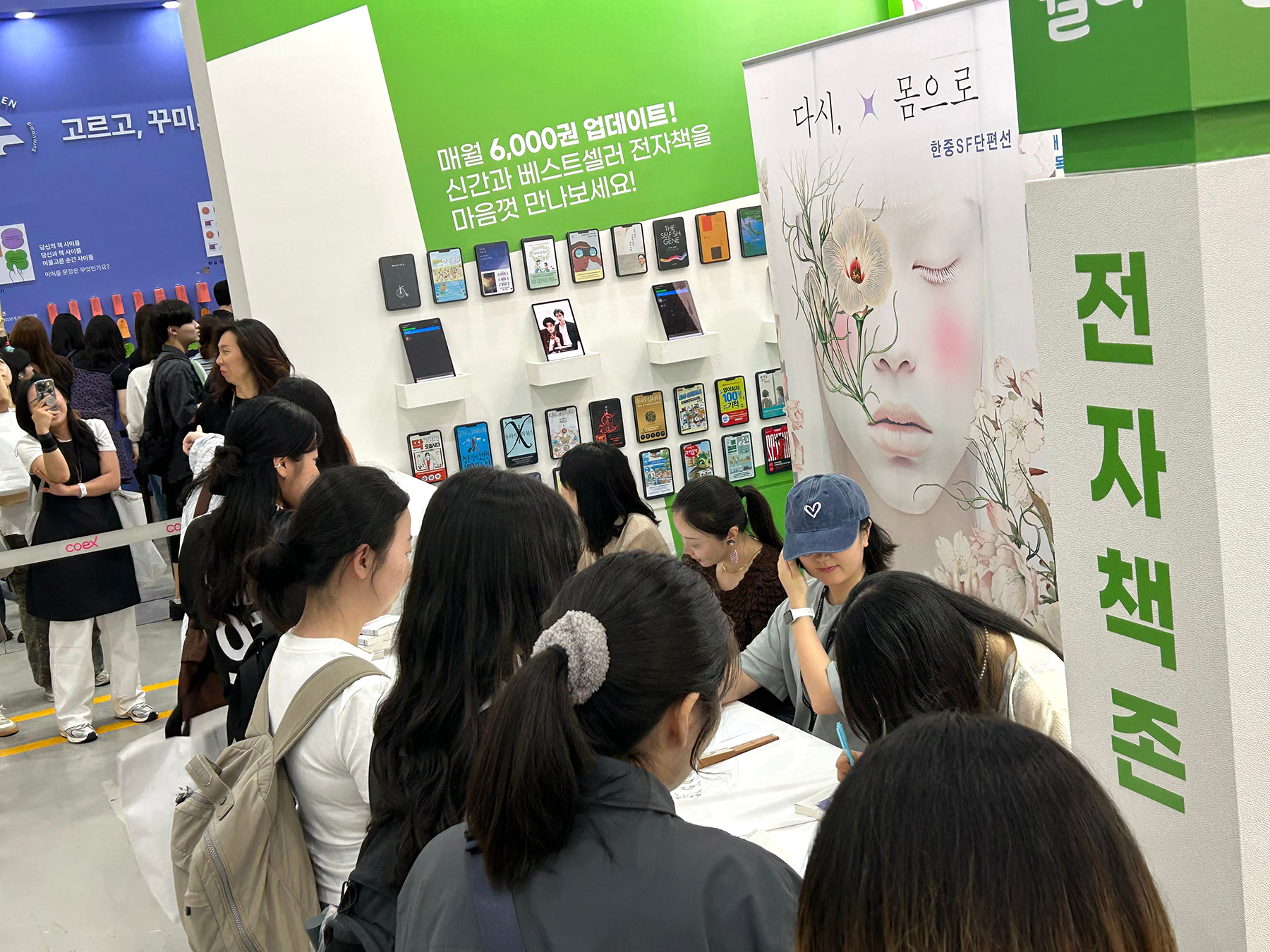
Kim Cho-yeop garnered international attention with her debut work, If We Cannot Go at the Speed of Light, which won South Korea's most prestigious Today's Young Artist Award in 2019. Cheon received the top prize at the 4th Korean Science Literature Award for A Thousand Blues in 2021 and was voted by 330,000 readers as a young writer representing the future of Korean literature. Cheon's novel is now being adapted into a Hollywood film by Warner Bros Pictures.
On the Chinese side, the three writers represent both established and emerging voices in sci-fi.
Zhou is the winner of the Terran Prize, sponsored by United States fantasy author George RR Martin. Cheng made history as the first Chinese woman to win both the Chinese Nebula Awards and the Galaxy Awards, the two most prestigious sci-fi accolades in China. Wang is also a recipient of the Chinese Nebula Awards, making her one of the genre's strongest new talents.
Explaining the anthology's theme, Kim Cho-yeop says, "Women will explore their bodies throughout their lives, along with the societal gaze cast upon them and the changing states of their bodies through different life stages.
"Sometimes, being so focused on the 'body' can feel like a strong constraint on women's lives. But because of this personal experience, women can develop their own unique 'body perspective'. Since we are destined to live confined in these bodies, we might as well see them as a source of discovery and wonder," she says.
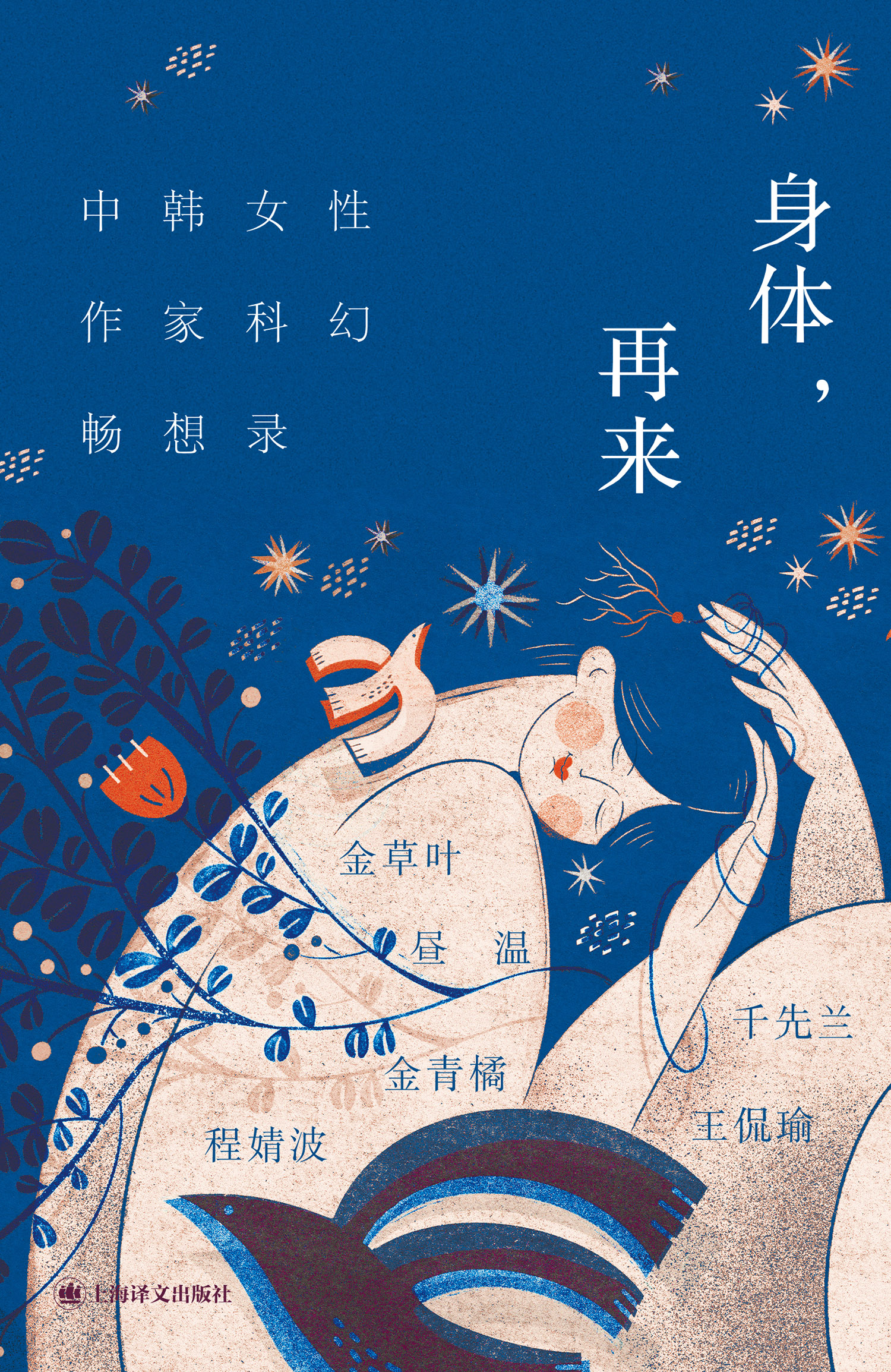
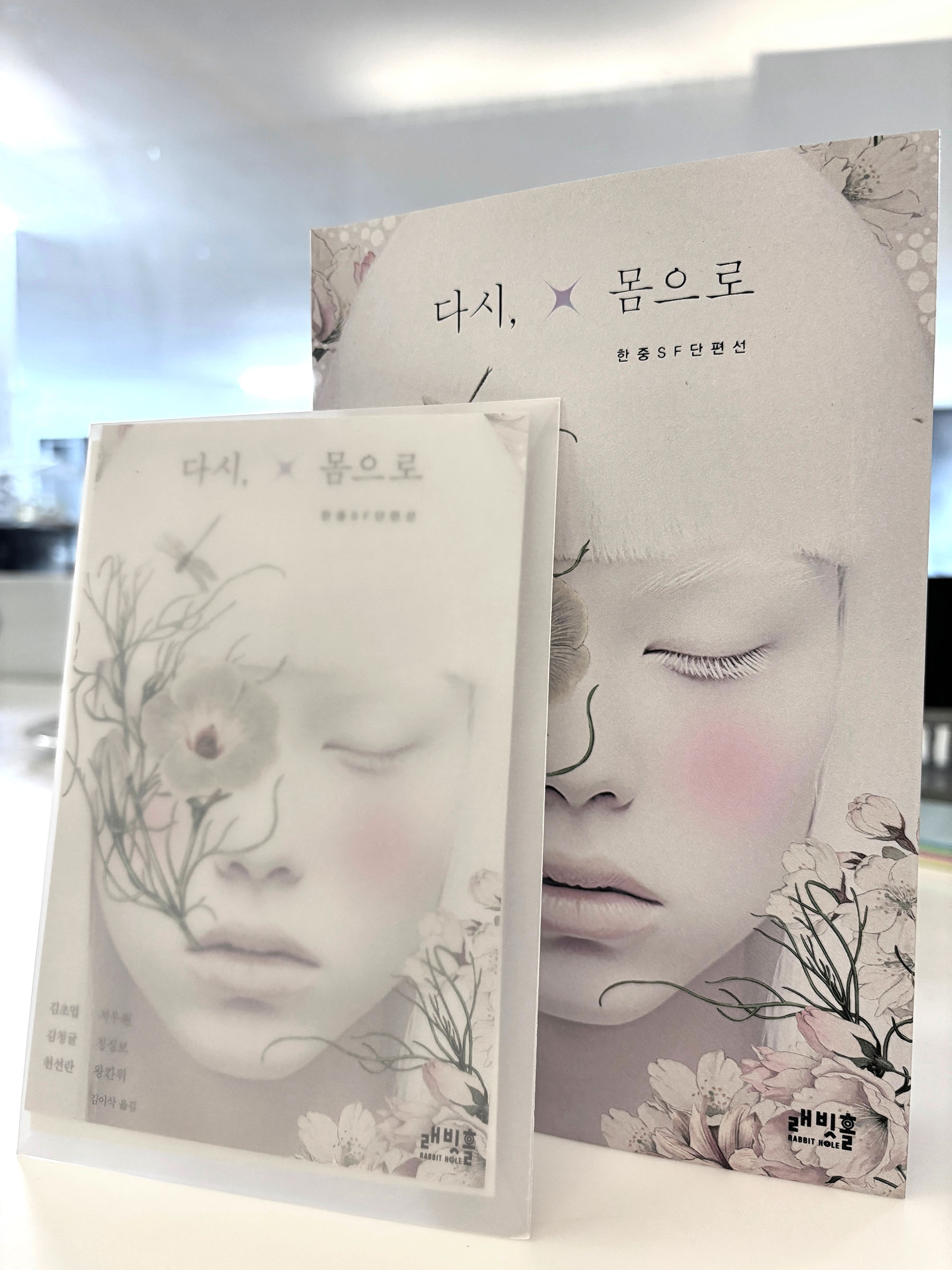
These sci-fi stories exploring the "body" include:
A protagonist who hates humans and detests touch is followed by a secondary character with obsessive devotion. (Kim Cho-yeop's Sweet and Tepid Sadness)
A female robot who barely responds to harassing touches yet reacts intensely to comforting gestures and hugs. (Kim Chung-gyul's Yes, I Want to Die)
A time-reversed mother-daughter pair, where the elderly daughter watches her young mother with curiosity and tenderness as she tells her own story. (Cheng Jingbo's A Brief History of Orchids)
A woman who wanders alone in a post-apocalyptic world, refusing to form relationships with others (Cheon Seon-ran's The Iron Record);groups of women coping with pain after implanting sensory-regulating chips (Wang Kanyu's Jade Carving);and two girls exploring bodies altered by language, bravely accepting change ahead of the rest of the world (Zhou Wen's Tomorrow's Illusion, Yesterday's Glow).
Ren Dongmei, a seasoned sci-fi researcher and critic, says that the most noteworthy aspect of Body, Again is how these authors translate common "body anxiety" in sci-fi writing into "body sovereignty".
"In traditional cyberpunk novels, the body is often simplified to 'replaceable prosthetics' or 'uploadable consciousness', whereas these female authors return the body to concrete experiences: menstruation, childbirth, pain, nurturing, touching and mourning. These experiences are no longer objects to be observed but become the engine of the narrative," Ren says.
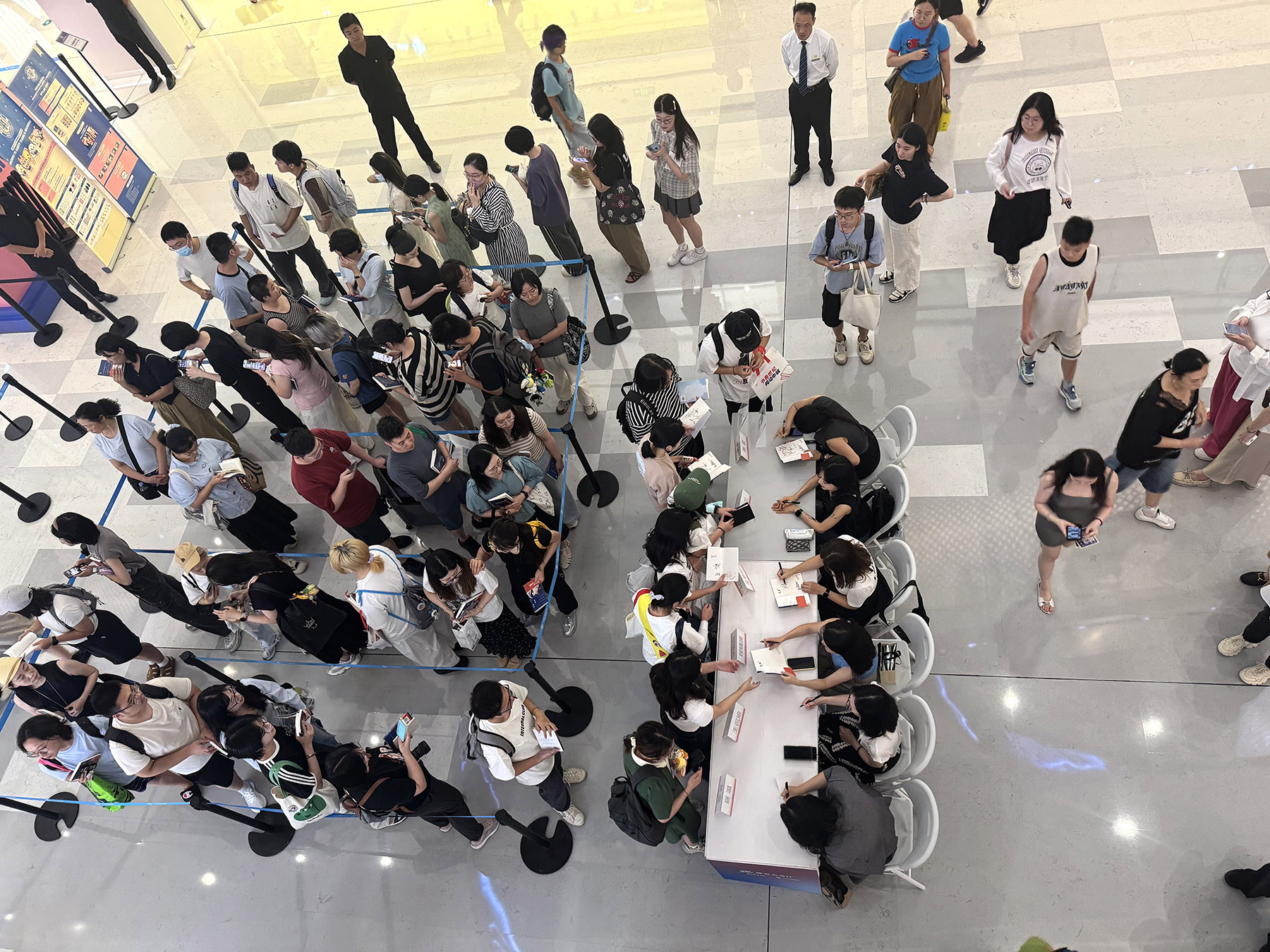
Once a term burdened with voyeurism and objectification, "body writing" is now being redefined by these writers as a distinctly 21st-century form, Wang says.
Instead of imagining escape from the "prison" of the body, they confront it directly, exploring coexistence with human limitations in the AI era.
In these stories, Kim Cho-yeop's main character who has lost her physical form yearns to be stung by bees; Kim Chung-gyul's robot would rather die with a human body; Cheon Seon-ran views the sensation of pain as a declaration of freedom; Wang transforms "women's pain "into a force driving AI evolution.
"In my relatively short life of over 30 years, I have clearly felt that society's view of women now is vastly different from decades ago. Therefore, female writers can understand that the current notions of 'humanity' and 'human nature' are not absolute but rather fluid, changing with the world," Kim Cho-yeop says.
ALSO READ: Authors say AI has uncertain future in writing
"Science fiction is a literary genre that expresses 'world change', so I feel that works by female sci-fi writers often do not adhere to established definitions, but are more open," she adds.
Ji Shaoting, the founder and CEO of the Future Affairs Administration, notes that in recent years, female expression has become a new driving force in the film and television market. In the future, women's life experiences told by female creators will also become a growth point in the content industry.
"After so many years in the sci-fi industry, the novelty it brings me is diminishing, but I see something new in female writers," she says. "They bring vitality and freshness to a genre that has existed for 200 years since Mary Shelley wrote the first sci-fi novel Frankenstein, allowing the body to be written from different perspectives. It makes me feel that this 'monster' of sci-fi, which has lived for hundreds of years, is still growing."
Contact the writer at yangyangs@chinadaily.com.cn


